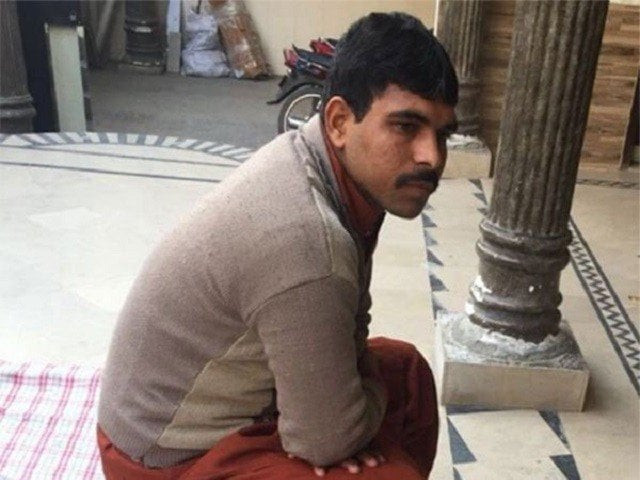Zainab’s family seeks Imran’s public hanging
Says ATA empowers govt to hang a convict publicly

PHOTO: FILE
Zainab’s father Amin Ansari filed a writ petition in the Lahore High Court (LHC) through Ishtiaq Chaudhry advocate, contending that the high court, the Supreme Court, and the President of Pakistan had dismissed the appeals of the convict.
He submitted that section 22 of the Anti-Terrorism Act of 1997 empowers the government to hang a convict publicly, “but the government is not complying with the law available on the subject”.
The petitioner requested the court to order the government to ensure the convict is hanged publicly to satisfy the requirement of deterrence in society.
On a similar petition filed by Amin previously, the high court had referred the matter to the government.
On Friday, an anti-terrorism court issued death warrant for the execution of Imran’s death penalty on Oct 17 in Kot Lakhpat jail. The court directed the jail superintendent to execute the warrant and submit a compliance report.
The ATC had on Feb 17, 2018 awarded death sentence on four counts to Imran Ali, 24, following a four-day jail trial at Kot Lakhpat Central Jail. The death penalty was awarded under four sections of the law including 364-A PPC (kidnapping a person under the age of fourteen), 376 PPC (rape), 302-B PPC (murder) and section 7 of Anti-Terrorism Act 1997 (for creating terrorism by his act).
The court had further awarded life imprisonment to the convict under section 377 PPC (unnatural offence/sodomy) and seven-year jail term under section 201 PPC (dumping the dead body). The court had also imposed a fine of Rs1 million on the convict to be paid to legal heirs of victim Zainab in addition to a collective fine of Rs3.2 million imposed under different sections of law.



















COMMENTS
Comments are moderated and generally will be posted if they are on-topic and not abusive.
For more information, please see our Comments FAQ